

The reporter learned that the DAMO Academy research team won the championship in the international competition for virtual power plants at the global AI top conference NeurIPS 2022. Their proposed AI solution for power dispatching, which innovatively integrates prediction technology, optimization technology and reinforcement learning, enabled the experimental project to reduce carbon emissions by 13.6% and electricity bills by 28.2% with no change in electricity consumption. This innovation is expected to accelerate the rollout of virtual power plants, especially zero-carbon parks, and promote the green transformation of energy.
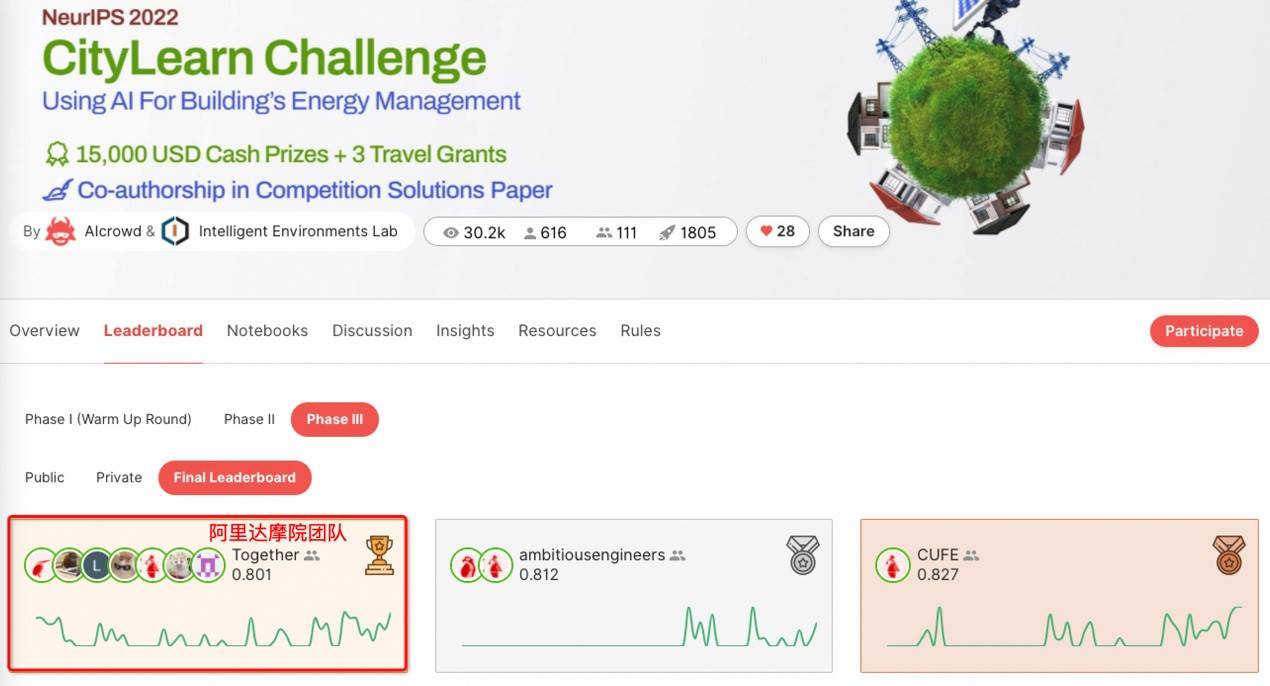
DAMO Academy team wins the championship
In the context of dual carbon goal, virtual power plants are attracting attention. The so-called virtual power plant is to aggregate and optimally dispatch the scattered photovoltaic, energy storage system, controllable load and other subjects on the user side through intelligent technology, which has the functions of promoting new energy consumption, reducing carbon emission and improving the safety of grid operation. The NeurIPS 2022 CityLearn Challenge set up a virtual power plant in a real park in California, USA, containing 17 buildings with photovoltaic and energy storage equipment. Teams will be required to reduce carbon emissions, electricity costs and grid fluctuations as much as possible without changing electricity consumption in order to move toward a "zero carbon campus.
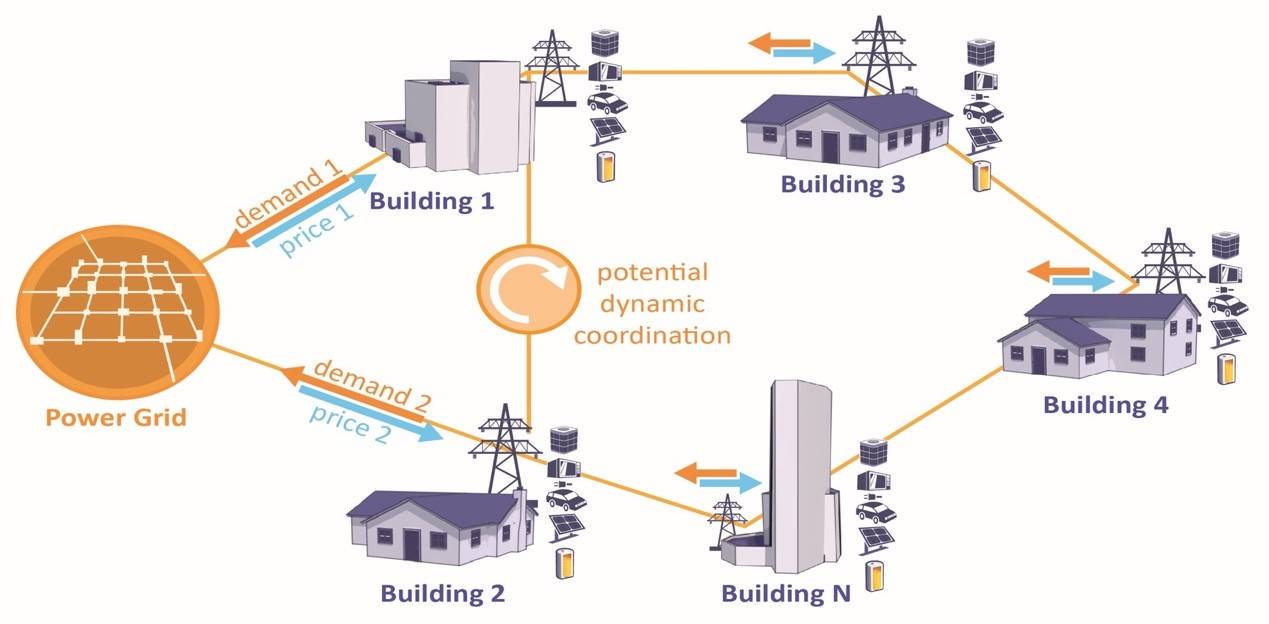
Schematic diagram of the experimental project
This top global tournament attracted more than 100 teams from over 50 countries, including top teams from Microsoft, University of Washington, Tsinghua University, Hong Kong University of Science and Technology, etc. The competition lasted for several months and after three rounds, the Ali DAMO Academy research team has won the championship, with their proposed AI solution allowing the experimental project to reduce carbon emissions by 13.6% compared to the benchmark, electricity costs by 28.2% and grid fluctuations by 17.9%.
According to reports, virtual power plants are technically difficult to implement because of the many subjects involved, the variety of scenarios, the high frequency of decisions, and the need to take into account multiple objectives. The competition requires the combination of new energy power AI prediction and power dispatch AI decision, first rolling forecast of hourly photovoltaic power generation based on weather conditions, and then real-time energy storage charging and discharging decision combined with the building load situation, the dispatching time is up to a total of 8760 hours a year, and the complexity of the calculation increases exponentially.
Given that prediction and decision making are closely related, the research team first adopted online rolling correction prediction technology to improve the accuracy of prediction as much as possible; then innovatively integrated optimization technology with reinforcement learning in the decision making process to achieve optimal decision making even if there is uncertainty in prediction. Specifically, they used DAMO Academy's self-developed optimization solver MindOpt and its modeling platform to transform complex power dispatch into a linear programming problem and solve it accurately and quickly. At the same time, they introduced a multi-intelligence collaborative reinforcement learning technique that allows many subjects in a virtual power plant to collaborate with each other in order to achieve the goals of low emissions, low electricity costs, and low volatility at the same time. The research team found that both optimization and reinforcement learning methods have their own advantages, so they obtained international leading results by integrating algorithms to take the best of both.
According to the report, this innovative technology has strong application value due to its ability to adapt to real-world uncertainties, and is expected to solve the scheduling challenges of virtual power plants. The winning team is from the Decision Intelligence Lab of DAMO Academy, which has won several international competitions on the topic of virtual power plants this year, including the winner of the GECCO 2022 "Risk-based Energy Dispatch" competition and the runner-up of the WCCI 2022 L2RPN French transmission grid dispatch competition. Based on its own solver, security reinforcement learning, timing prediction and other underlying technologies, the lab has created green energy AI solutions that have been implemented in many power grids and power generation enterprises across China, and are continuously promoting the consumption of green energy and helping the safe operation of power grids.
记者获悉,在全球AI顶会NeurIPS 2022的虚拟电厂国际竞赛中,阿里达摩院研究团队获得冠军。他们提出的电力调度AI解决方案,创新性地融合预测技术、优化技术和强化学习,使得实验项目在用电量不变的前提下,碳排放量减少13.6%,电费减低28.2%。这项创新有望加速虚拟电厂尤其是零碳园区的落地推广,推动能源绿色转型。
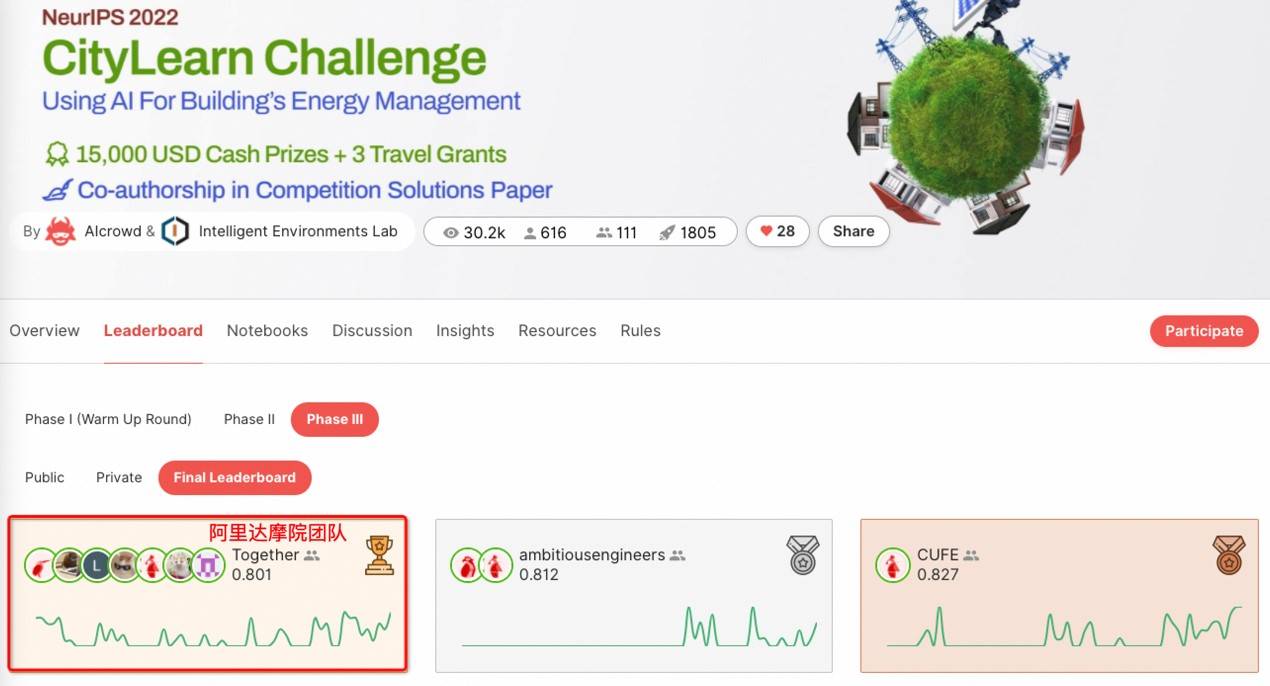
达摩院团队夺冠
双碳背景之下,虚拟电厂备受关注。所谓虚拟电厂,是通过智能技术将用户侧分散的光伏、储能系统、可控负荷等主体进行聚合并优化调度,具有促进新能源消纳、降低碳排放、提升电网运行安全等作用。NeurIPS 2022 CityLearn Challenge设定的虚拟电厂是美国加州一个真实园区,包含17幢配有光伏和储能设备的楼宇。参赛队伍需要在不改变用电量的情况下,尽可能降低碳排放量、电费和电网波动,以向 “零碳园区”迈进。
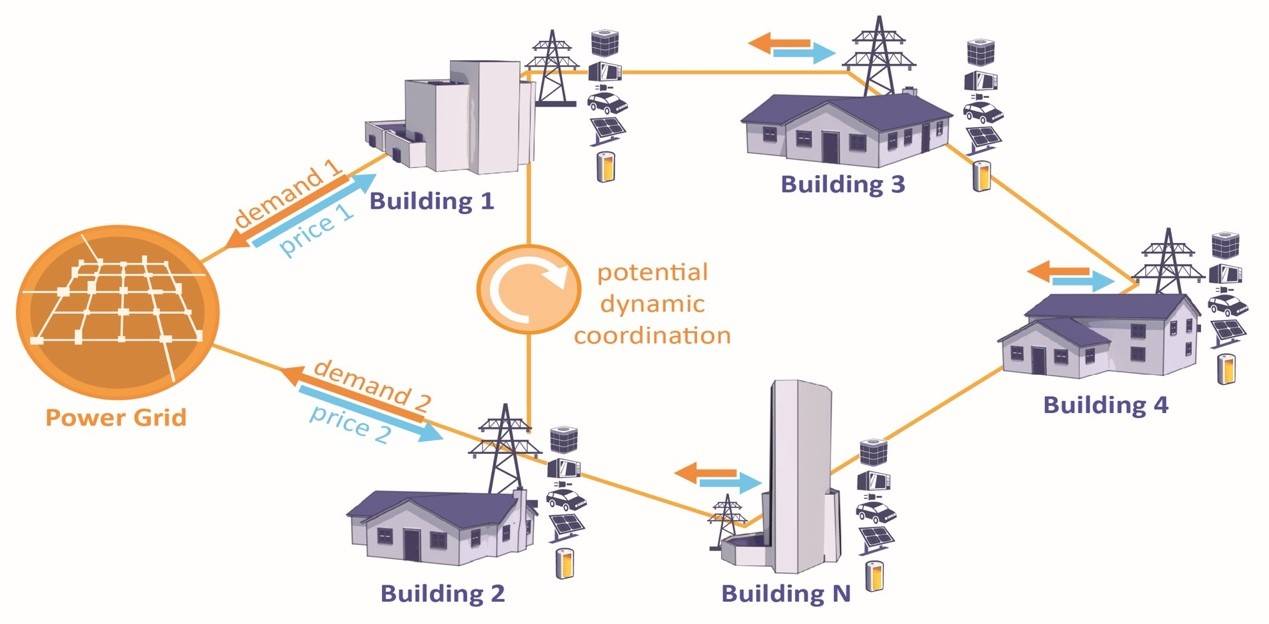
实验项目示意图
这项全球顶级赛事吸引了50多个国家的100多支队伍参加,包括微软、华盛顿大学、清华大学、香港科大等顶尖团队,比赛持续数月,历经三轮,最终阿里达摩院研究团队获得了冠军,他们提出的AI解决方案可让实验项目的碳排放量较基准下降13.6%,电费下降28.2%,电网波动减少17.9%。
据介绍,虚拟电厂由于牵涉主体众多,场景多样,决策频率高,且需要兼顾多个目标,技术实现难度高。这项比赛更是需要将新能源功率AI预测与电力调度AI决策相结合,先根据天气状况滚动预测每小时的光伏发电情况,再结合楼宇负荷情况进行实时的储能充放电决策,调度时长高达一年合计8760个小时,计算复杂度遽增。
鉴于预测与决策紧密相关,研究团队先采用了在线滚动校正预测技术,尽可能提升预测的准确性;随后在决策环节创新性地将优化技术与强化学习进行融合,即便预测存在不确定性,依然能实现最优决策。具体而言,他们利用达摩院自研的优化求解器MindOpt及其建模平台,将复杂的电力调度转化成线性规划问题,进行准确、快速地求解;同时引入了多智能体协作的强化学习技术,让虚拟电厂众多主体相互协同,以同时实现低排放、低电费、低波动的目标。研究团队发现,优化和强化学习两种方法各有优势,于是他们通过集成算法取两者之长,获得了国际领先的结果。
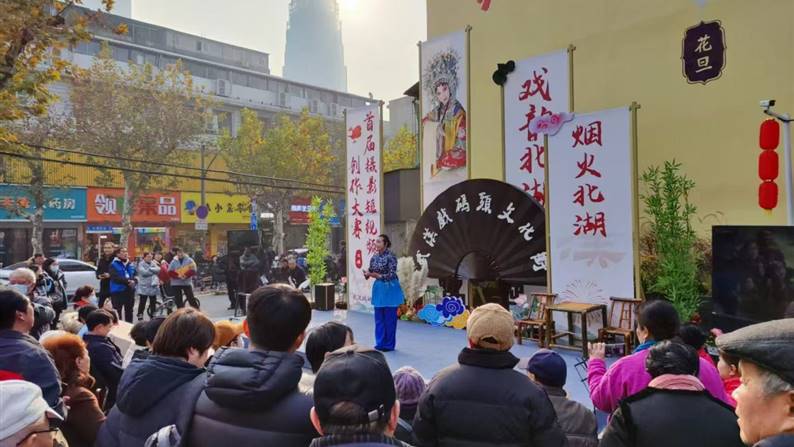
打造绿色低碳街区,奏响幸福美好生活最强音
10-18 · 来源:湖北省武汉市江汉区北湖街道环保社区 · 作者:湖北省武汉市江汉区北湖街道环保社区
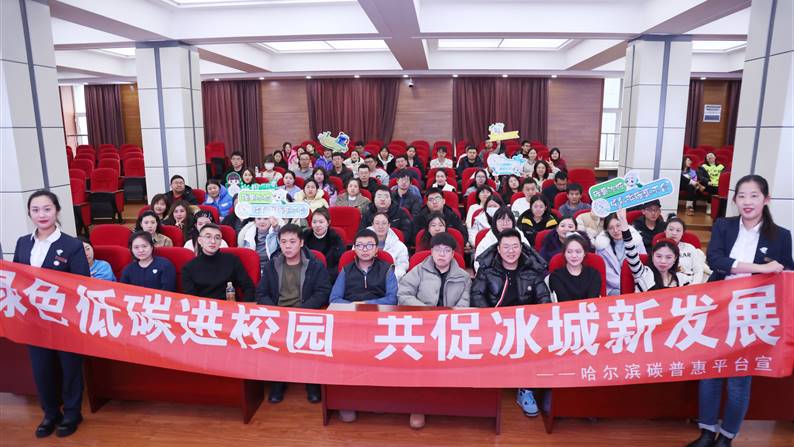
“碳惠冰城”:东北首个市级平台的“双碳”实践与冰城示范
10-15 · 来源:哈尔滨产权交易所有限责任公司 · 作者:哈尔滨产权交易所有限责任公司
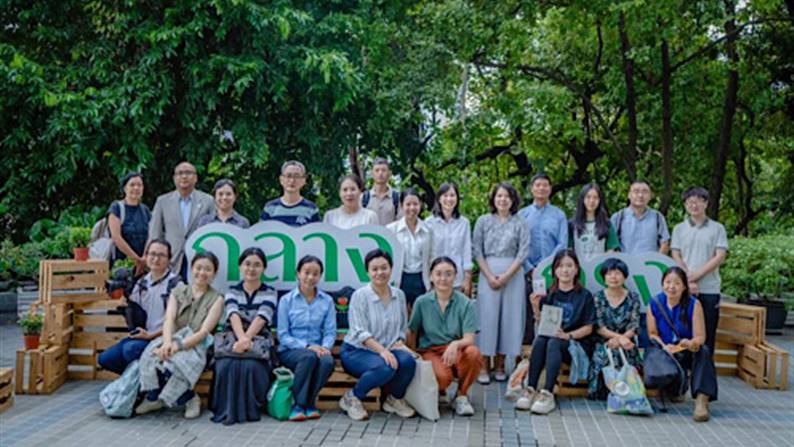
亚洲气候治理新篇章:中国公益代表团参访曼谷气候周,探索跨区域合作新路径
10-10 · 来源:公益时报 · 作者:公益时报